US, allies set for long war in Ukraine despite global hunger, economic risks
The US and its European allies are preparing for a protracted war in Ukraine even at the cost of “a global recession and mounting hunger” as the Biden administration attempts to deny Russia victory by boosting military aid to Kiev, a US daily says citing administration officials.
“Biden administration officials had discussed the possibility of a protracted conflict [in Ukraine] with global spillover effects even before February” when US intelligence had suggested Russia was preparing to invade the country, The Washington Post reported Saturday citing “a senior State Department official who spoke on the condition of anonymity to describe ongoing international deliberations.”
The daily further cited the official as noting that the Biden administration hopes that the surge of supplying new weaponry to Kiev -- in addition to successive waves of sanctions and Russia’s diplomatic isolation – would potentially avert Moscow’s willingness to continue the fight.
“Even if that reality does not materialize immediately, officials have described the stakes of ensuring Russia cannot swallow up Ukraine… as so high that the administration is willing to countenance even a global recession and mounting hunger," the report added.
“Our guiding light is that the outcome of Russia being able to achieve its maximalist demands is really bad for the United States, really bad for our partners and allies, and really bad for the global community,” the State Department official further emphasized as quoted in the report.
Already the war -- compounding the effects of the coronavirus pandemic -- has plunged the world economy, now expected to suffer years of low growth, into renewed crisis, the daily underlined.
“It has also deepened a global food emergency as the fighting pushes up prices of basic goods and cripples Ukraine’s grain exports — which typically feed hundreds of millions of people a year — pushing some 44 million people closer to starvation,” the report added, citing the World Food Program.
It also pointed out that the announcement this week of an additional $1 billion in “security aid” for Ukraine by US President Joe Biden -- the single largest tranche of US assistance to date – “offered the latest proof of Washington’s determination to ensure Ukraine can survive a punishing battle for the eastern Donbas region.”
In a sign of how Western weaponry has the potential to pull the West deeper into the war, a US defense official on Friday confirmed that a US-made Harpoon anti-ship missile had struck a Russian tugboat in the Black Sea. For the first time as part of Biden’s latest arms package, the United States said it will provide Ukraine with mobile Harpoon launchers.
The decision to supply Ukraine with increasingly sophisticated arms such as anti-ship missiles and long-range mobile artillery — capable of destroying significant military assets or striking deep into Russia — reflects a growing willingness in Western capitals to risk unintended escalation with Russia.
European nations, including Germany and Slovakia, also unveiled their own shipments of advanced weapons that included helicopters and multiple-launch rocket systems, the report added.
The support appears to have emboldened the government of President Volodymyr Zelensky, who this week vowed to retake all of what he claimed as Russian-controlled Ukraine.
“We’re here to dig in our spurs,” US Defense Secretary Lloyd Austin said after convening dozens of US-allied nations in Brussels to pledge greater support for Kiev last week.
Underscoring what Western nations say is a radically altered security outlook, leaders of the US-led NATO military alliance are expected to unveil new deployments to Eastern Europe at a late June summit in Madrid.
Ahead of that meeting, Chairman of the US Joint Chiefs of Staff General Mark Milley has defended the need to stop Russia in stark terms, equating the suffering among civilians in Ukraine to what Nazi Germany inflicted on Europe.
Back in April, Milley also emphasized during congressional testimony that hostilities in Ukraine could be “very protracted” and might endure “for years.”
“I do think this is a very protracted conflict and I think it’s at least measured in years, I don’t know about a decade but at least years for sure,” Milley told the House Armed Services Committee.
“This is a very extended conflict that Russia has initiated and I think that NATO, the United States, Ukraine and all of the allies and partners that are supporting Ukraine are going to be involved in this for quite some time,” he added.
As the conflict grinds on, the daily further noted, “it is prompting conversations about what trade-offs the United States may need to make in its larger foreign policy goals or its massive military budget.”
The Senate Armed Services Committee, citing inflation and the war in Ukraine, on Thursday added $45 billion to the defense budget, bringing the likely bill to $847 billion for the next fiscal year.
Israeli tank fires on Lebanese army during joint UN mission in south Lebanon: Report
Iran certain to deliver decisive response to Trump’s threats: Senior commander
Netanyahu skipped Davos amid arrest fears: Reports
VIDEO | West’s support for terror in Iran
VIDEO | Press TV's news headlines
More Europeans see Trump as 'enemy' than 'friend': Survey
Ukraine war talks begin in UAE as Russia repeats Donbas demand
Iran slams UNHRC session as illegitimate, says no submission to foreign pressure


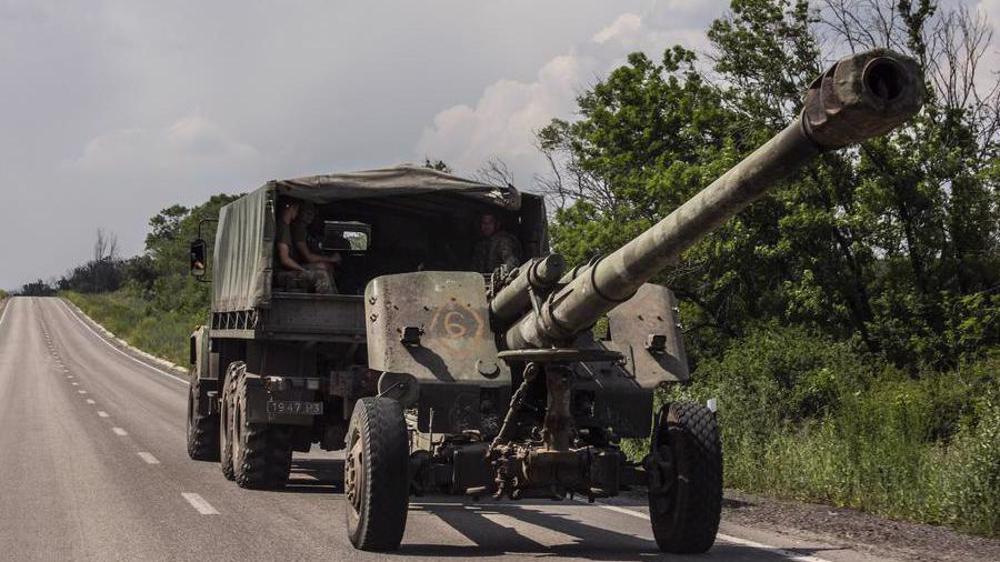
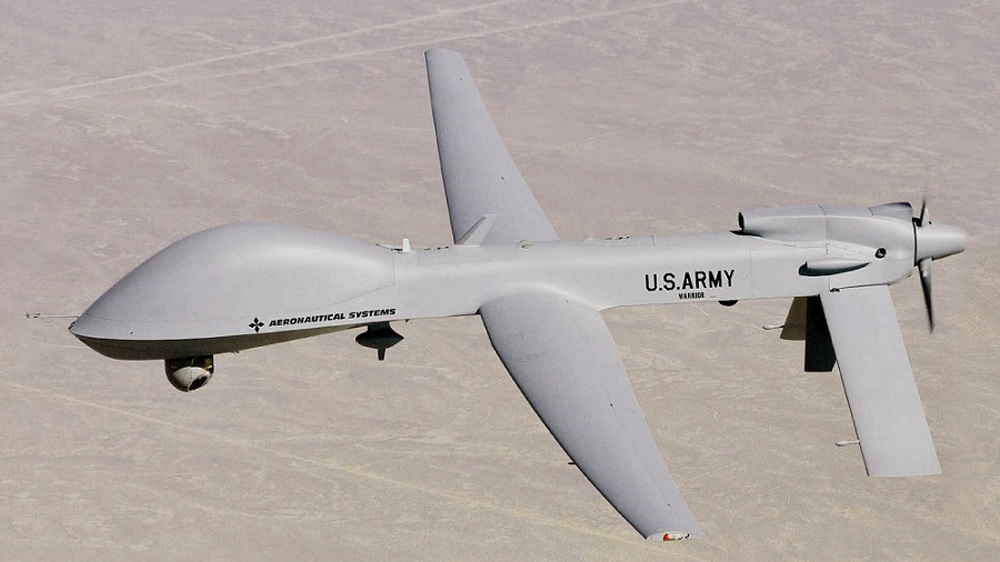
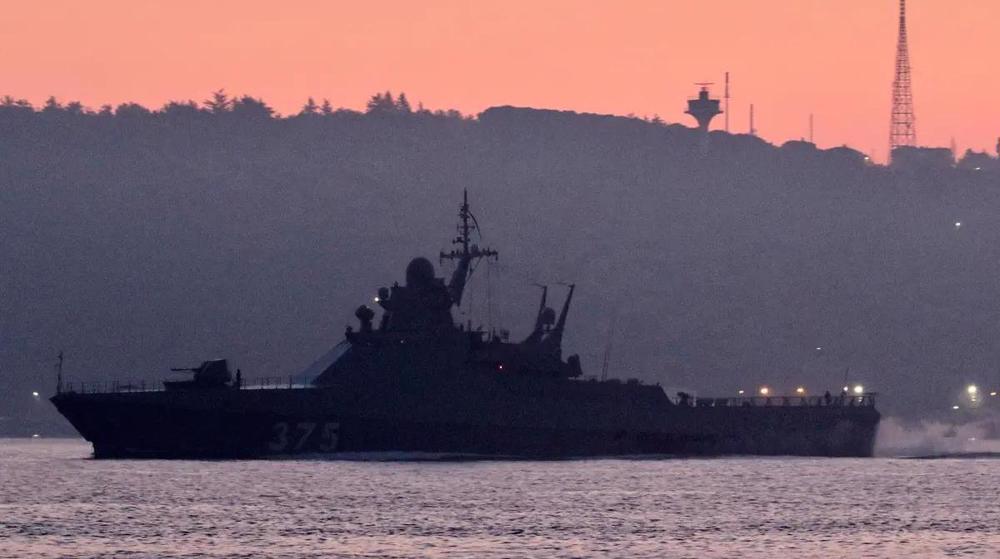
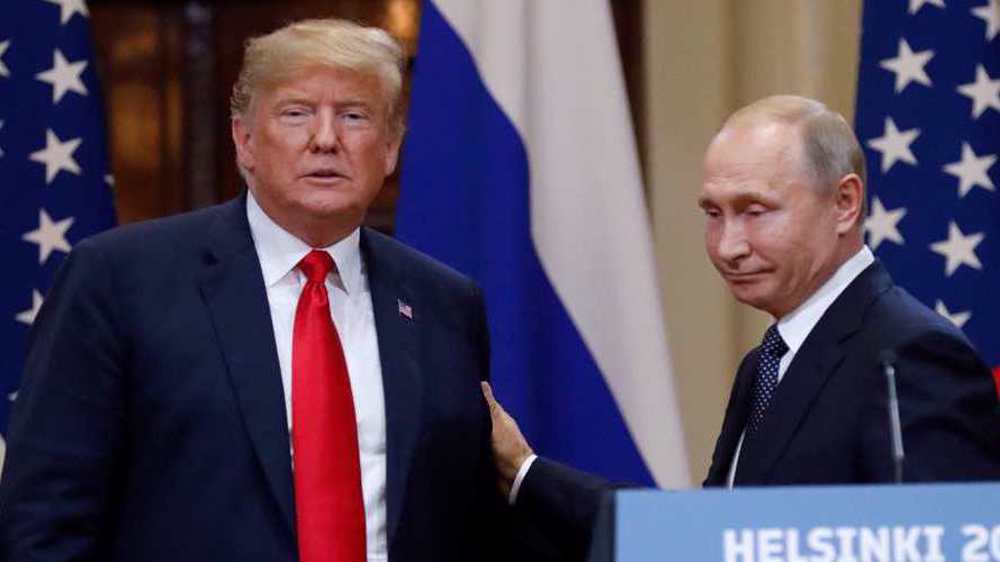
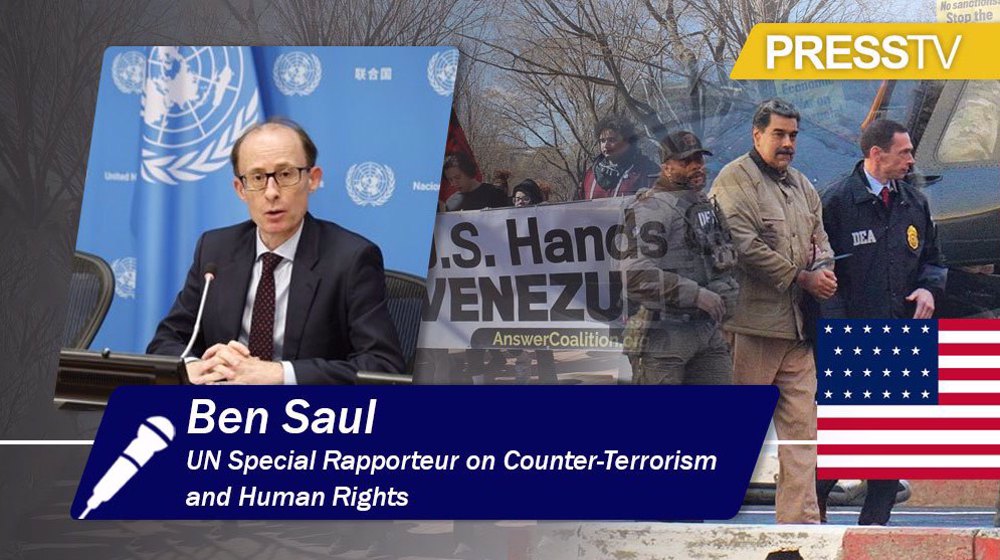
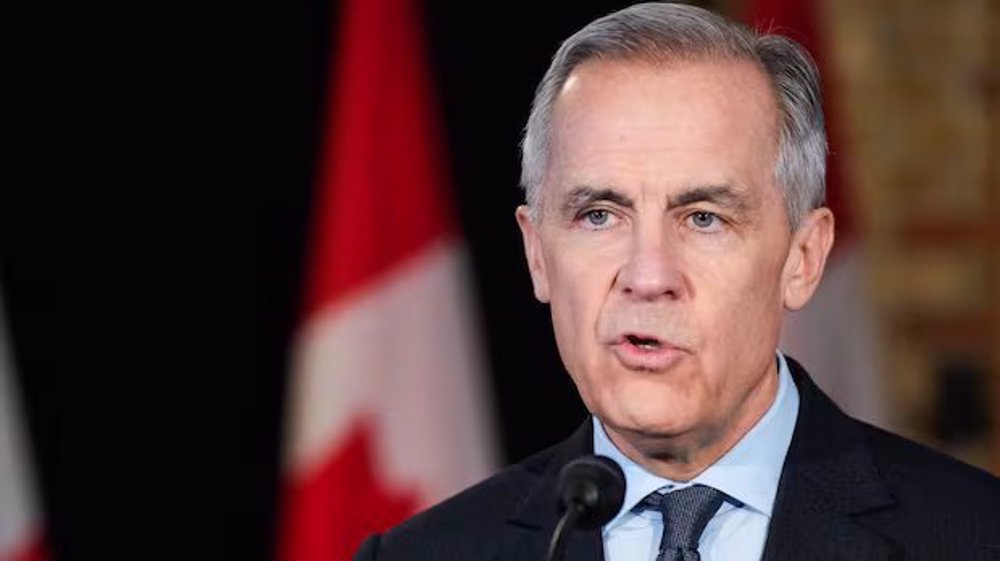
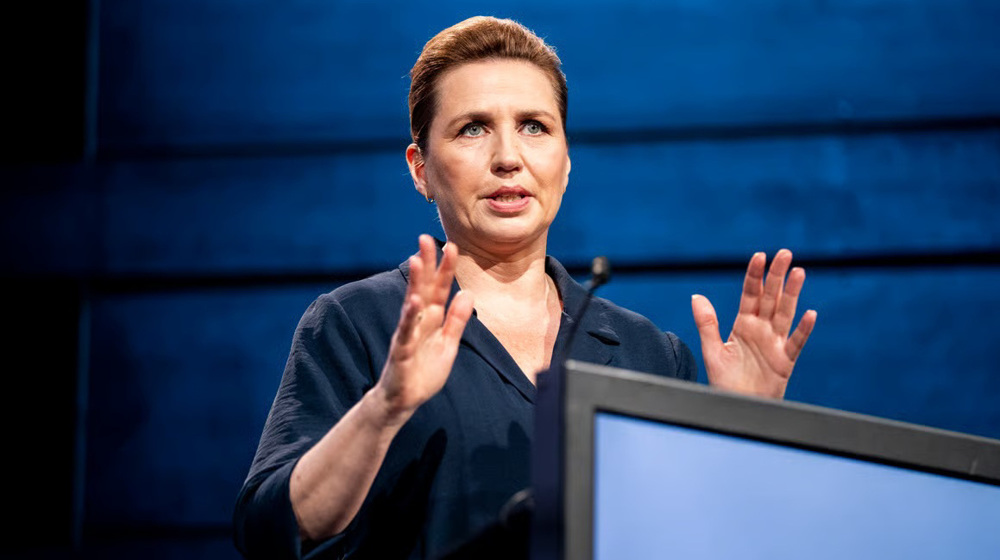



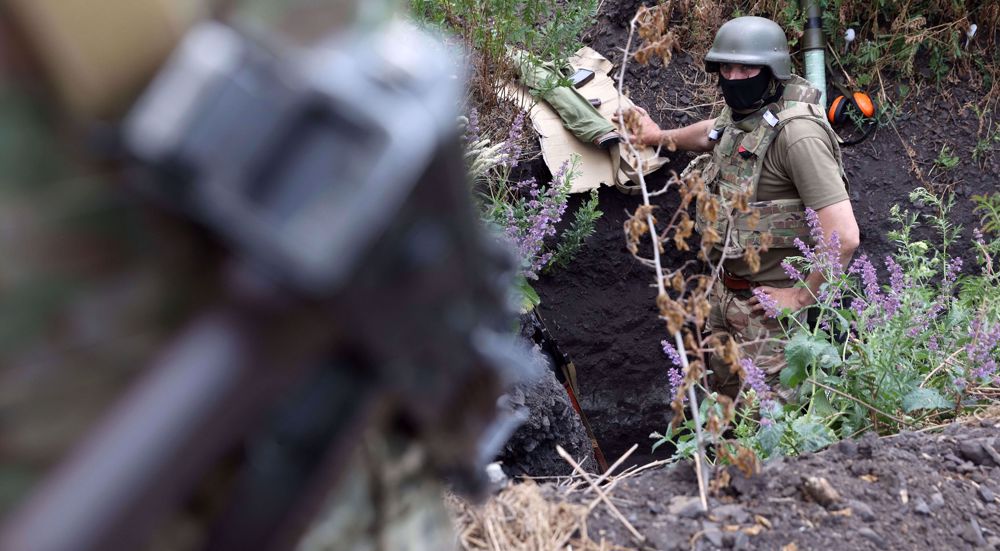
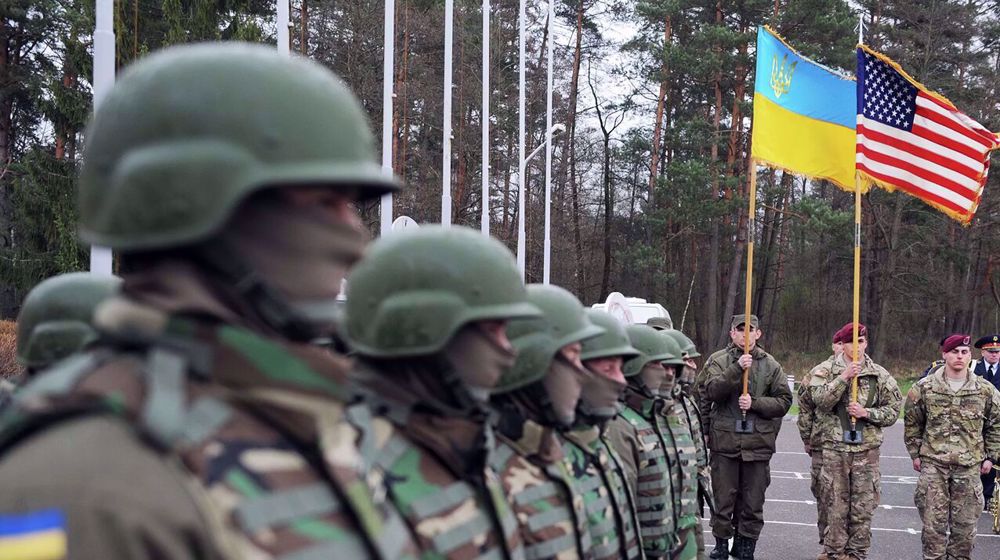
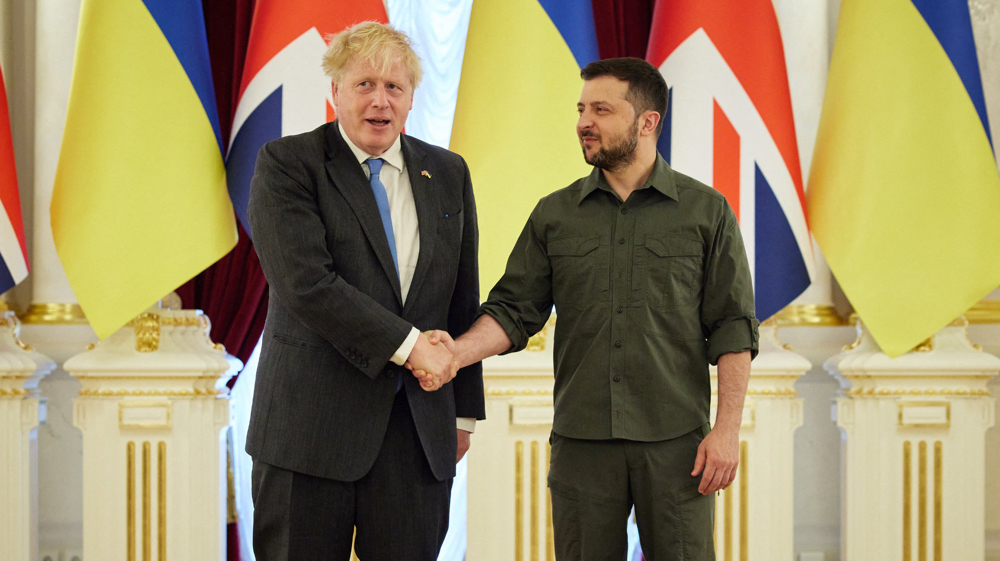

 This makes it easy to access the Press TV website
This makes it easy to access the Press TV website